Revision tops the list for the best thing you can do for your story…
but sometimes it’s the most neglected step. Some people don’t revise because their writing seems so personal; it’s their baby, a masterpiece. No one should tinker with it. Others simply refuse to take the time and effort.
But if you’re serious about writing a great story, embrace revision. Look at it as the final polish of the jewel you’ve cut out of a rock. This digs deeper than just correcting the typos. I thought I’d share with you my checklist. I go over every single scene of every chapter with this list.
The Big Picture List
- Does every scene have a goal, appropriate conflict and disaster?
- Does every sequel section have reaction, dilemma, and decision? (For more details on these two see Lesson 23 in February called “Framing Your Story”.
The Nitty-Gritty List
- Did my characters have unique emotional reactions? Or were they stereotyped? (Don’t settle for the first thing that comes to your mind. Dig deeper.)
- Sub-texting—okay, this is an advanced topic that deserves a whole lesson, but basically it’s about writing with subtle implications. Is all of the dialogue and action “on the nose”? Make some of it subtle so the other characters (and the reader) have to figure it out.
- Metaphors—did I bring the scene to life with a well-placed metaphor? One that not only compares two things, but has deeper implications?
- The five senses—try to add something of touching, tasting, smelling, hearing, and seeing in every scene. If you’re like me, you’ve probably already included something they see and likely something they hear. Don’t neglect the other three.
- Unique Observations about human nature—I try to work something in that makes the reader think “how true”. Don’t force it in, but if it works into the story naturally, it takes the writing to another level.
- Humor—This doesn’t have to be the laugh out loud type. But give a character a witty line of dialogue or an incongruity in their inner thoughts. Make the reader smile.
- Tension in dialogue—Can a character say something more provoking? More sarcastic? More accusing? More probing? Come on, ratchet up the tension.
- Add details—It’s the little things sometimes that bring a scene to life and make us feel like we’re really there: a toe poking out the hole in a sock or the single yellow flower growing between the cracks of a sidewalk.
- Cut the weasel words. Here’s some of mine: just, actually, really, rather, began to, started to, tried to, some, both, even, only, all. Many times these words simply clutter the sentence.
- Cut the filters. You’ll go much deeper into a character’s point of view if you cut words like: he saw, felt, noticed, wondered, realized, noted, observed, etc. Example: He realized that Bethany no longer welcomed him with a smile. Just write: Bethany no longer welcomed him with a smile. Now you’re deeper into the character’s mind.
- Power verbs—I’ve saved the most important until the last. If you do nothing else, at least go back and see if can pump up the verbs. Hit becomes jabbed, punched, slammed, etc. Push changes to shove, thrust, bulldoze, ram, etc. Don’t just say she smelled the fresh chocolate chip cookies. The scent of chocolate chip cookies swarmed her.
Does that seem like a lot of work? You betcha! But good writers do this. They polish their jewel until it shines.
Exercise: Go back over something that you have written, and power up the verbs. Next take one more item from the list and go over your scene with that revision in mind. If you’re serious about this, keep going.

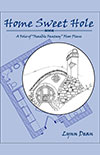

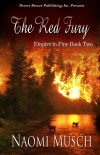
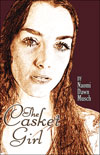

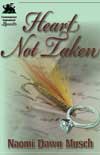

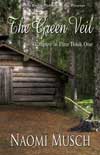







You guys are amazing. I learn so much every time I read your posts.
Thanks for this list. I checked the weasel words and filters in my work and found a bunch of things that needed changed. I wouldn’t have thought of that on my own. Now sometime I need to go through the rest of the list.